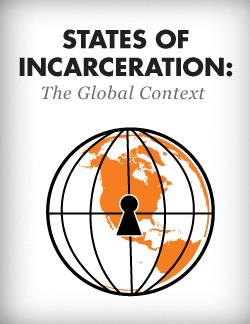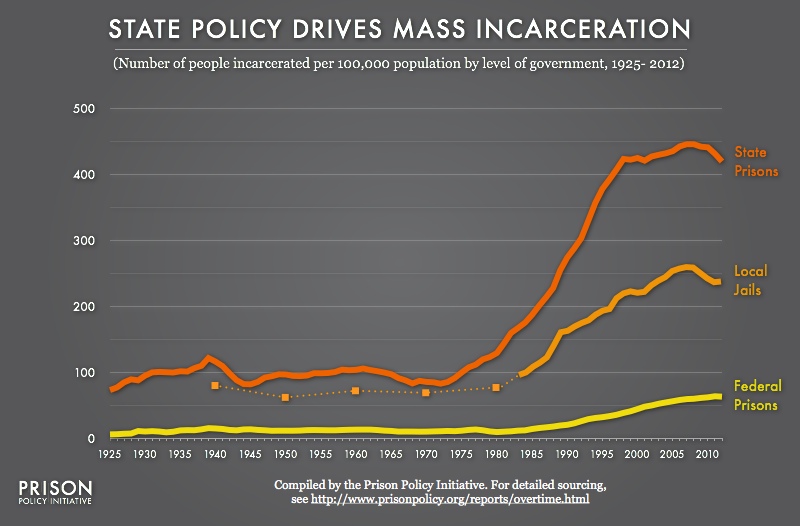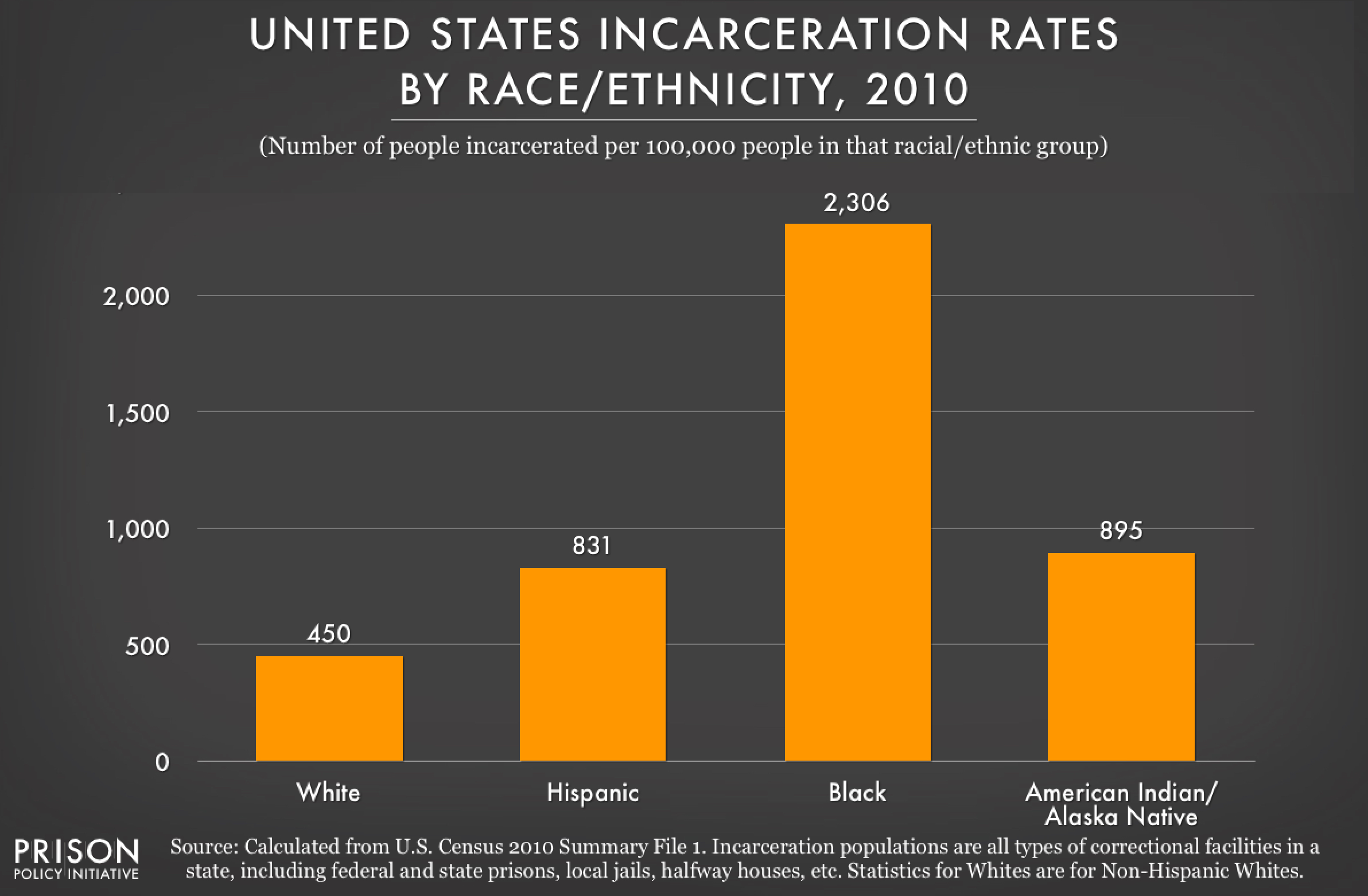by Leah Sakala,
June 13, 2014
The Huffington Post just published my new article, The Father’s Day Profiteers That Put Hallmark to Shame. Here’s how it starts:
This Sunday, more than a million families will face a huge Father’s Day problem, and it’s not figuring out which tie pattern dad would like best. It’s the astronomical cost of wishing him a Happy Father’s Day over the phone if he happens to be one of the 1.2 million parents in prison or jail. That’s because the prison telephone industry wants to charge families as much as $1/minute just to tell incarcerated loved ones that they are loved and missed.
The article includes some heart-breaking first-hand testimonies from the tens of thousands of petition messages that we collected with SumOfUs calling for Federal Communication Commission (FCC) regulation:
- “…because I’m a single mom now, I can’t afford to indulge [my daughter] so she can talk to the only man she’s ever called Daddy. That is wrong.”
- “My little boy turned one today and it cost $12 for his dad to be able to sing him happy birthday. It’s not right that prison phone calls are so overpriced.”
- “While [my son’s] dad tries to write letters & cards, talking on the phone is a much more accessible way to connect with and develop a semblance of a relationship with a small child. My son rarely gets to talk to his dad anymore…”
- “My son’s father has been in prison for most of my son’s life. My son has only spoken to his father once in the last 10 years. My son is 14 now. If it were more affordable to speak to his father, perhaps my son would feel like he has some sort of connection with his father.”
- “My dad was in jail when I was a child and at this price there is no way my mom would have been able to afford to let me talk to him. Without my dad I would not be who I am today.”
Alongside these families that have been calling for prison phone justice for more than a decade, here at Prison Policy Initiative we’ll keep fighting to ensure that families can afford to stay connected on Father’s Day and every day.
Legislators listen up,
we want fair elections!
You can't count constituents
in your house of corrections!
by Leah Sakala,
June 12, 2014
I have the good fortune to be a bike commuter for most of the year, which gives me some good bike path thinking time every morning. A couple of years ago, I was riding along and mulling over ways to explain prison gerrymandering (as you do) when the lyrics started to come to me for a new spin on the classic Yankee Doodle.
Here’s how it starts:
If there’s a prison in your district,
don’t get so elated
‘cause it’s not fair to count folks there
who are incarcerated
Your district may be padded full,
but please don’t you gloat
’cause you are violating my right
to one person, one vote
Chorus:
Legislators listen up,
we want fair elections!
You can’t count constituents
in your house of corrections
The full sing-along print-out version is here.
How does your state compare to the international community when it comes to the use of incarceration? Not very well, says a new infographic and report by the Prison Policy Initiative and data artist Josh Begley.
June 11, 2014
 June 11, 2014 — How does your state compare to the international community when it comes to the use of incarceration? Not very well, says a new infographic and report by the Prison Policy Initiative and data artist Josh Begley.
June 11, 2014 — How does your state compare to the international community when it comes to the use of incarceration? Not very well, says a new infographic and report by the Prison Policy Initiative and data artist Josh Begley.
This report, “States of Incarceration: The Global Context,” recognizes that while there are important differences between how U.S. states handle incarceration, incarceration policy in every region of this country is out of step with the rest of the world.
“It is essential to focus on the incarceration practices of individual states,” said Peter Wagner, Executive Director of the Prison Policy Initiative. “Most criminal justice policy decisions are made at the state level and the vast majority of the people locked up are locked up for violating state laws,”
This report is the first to directly situate individual U.S. states in the global context. The report and infographic draws international figures on incarceration from the International Centre for Prison Studies and state-level data from the U.S. Census Bureau.
“Compared to Louisiana, most U.S. states appear to have reasonable rates of incarceration, but it is disturbing to see where these ‘reasonable’ states stack up in the broader carceral landscape,” said data-artist and co-author Josh Begley.
The non-profit, non-partisan Prison Policy Initiative produces cutting edge research to expose the broader harm of mass incarceration, and then sparks advocacy campaigns to create a more just society. Josh Begley, a graduate of the Interactive Telecommunications Program at New York University, is most famous for creating an iPhone app that tracks every reported United States drone strike. Past collaborations between Mr. Begley and the Prison Policy Initiative have included an infographic about whether the states that bar the most people from the polls should in fact be picking the next president and Prison Map, a website exploring the geography of incarceration.
Links:
– 30 –
Senator Robert Byrd’s passion for pork was legendary, and his love for prison-flavored pork helped fuel the record breaking growth in the federal prison population.
by Peter Wagner,
June 10, 2014
While preparing our report Breaking Down Mass Incarceration in the 2010 Census: State-by-State Incarceration Rates by Race/Ethnicity, we discovered something interesting: West Virginia has more federal prison cells per capita than any other state. In fact, there are more people incarcerated in federal prisons in the state than are incarcerated in state and local jails combined.
Almost one out of every 200 people in the state is locked up in a federal prison, a rate more than seven times higher than the country as a whole. Of course, this doesn’t meant that West Virginians violate federal law more than other states, but it does mean that that state has more federal prisons than anywhere else. (And given the fact that West Virginia is one of the whitest states in the country, it certainly makes a difference to the demographics reported in the census.)
So why does West Virginia have so many federal prisons? Because until 2010, the senior senator on the U.S. Senate’s appropriation’s committee was West Virginia Senator Robert Byrd. As the longest serving U.S. Senator in history — not to mention multi-term Chairman of the Senate Committee on Appropriations — Byrd was powerful, and he focused his political clout on bringing as much federal money in to West Virginia as he could.
Senator Byrd’s passion for pork was legendary and his love for prison-flavored pork helped fuel the record breaking growth in the federal prison population over the last three decades. That’s because prison is no exception to the saying “if you build it, they will come.”
Now, it would be fair to wonder if Senator Byrd wasn’t just advocating for his state to receive federal prison money that was already earmarked to be spent somewhere. Unfortunately, the historical record makes it clear that support from the longest serving U.S. Senator in history can make things happen that wouldn’t otherwise, such as the opening of brand new FCI McDowell prison despite the Bush administration’s attempts to cut it from the budget.
Source: Jake Stump, “Byrd hopes the $126 million he secured to run prisons is really secure” Charleston Daily Mail, July 12, 2007.
Our newest staffer comes to us from the University of California, Berkeley, and has previously worked with National Council on Crime and Delinquency, Voice of the Ex-Offender, and Californians United for Responsible Budget.
by Peter Wagner,
May 30, 2014
 Please welcome our new Policy & Communications Associate, Bernadette Rabuy.
Please welcome our new Policy & Communications Associate, Bernadette Rabuy.
Bernadette comes to us from the University of California, Berkeley, and has previously worked with National Council on Crime and Delinquency, Voice of the Ex-Offender, and Californians United for a Responsible Budget.
Bernadette starts August 1st.
Supreme Court struck down Florida decision that Freddie Lee Hall was eligible for execution with an IQ score of 71, above the cutoff of disability at 70.
by Bernadette Rabuy,
May 28, 2014
On Tuesday, May 27, 2014, the United States Supreme Court struck down Florida’s strict use of an I.Q. cutoff as a legitimate way to decide which mentally disabled individuals must be spared from the death penalty. In a 5-to-4 decision, the Supreme Court ruled that Florida was in violation of the Eighth Amendment’s prohibition of cruel and unusual punishment.
In a 2002 Supreme Court case, Atkins v. Virginia, the Supreme Court gave states general guidelines for determining intellectual disability: low I.Q. scores, a lack of fundamental social and practical skills, and the presence of both conditions before age 18. Furthermore, while the Supreme Court left the specific qualifications to the states, it did assert that I.Q. scores under approximately 70 typically indicate disability.
On Tuesday, the Supreme Court further curbed the use of the death penalty. While in a 2012 decision the Florida Supreme Court ruled that Mr. Freddie Lee Hall was eligible to be executed since he had been measured with I.Q. scores of 71, 73, and 80, on Tuesday Justice Kennedy disagreed with the Florida Supreme Court arguing that intellectual disability should not be boiled down to a rigid number and should be understood as a more complex condition. As Hofstra law professor Eric M. Freedman states, “death row inmates commonly suffer from multidimensional mental problems.” This ruling will affect other states with similar cutoffs, such as Kentucky, Virginia, and Alabama.
Tuesday’s Supreme Court decision is reflective of recent discussions to further limit the use of the death penalty, which Justice Kennedy called the “gravest sentence our society may impose.” A recent study by Samuel Gross, a law professor at the University of Michigan Law School, found that more than 4% of all defendants who have been sentenced to death are likely innocent. Gross explains that while the number of innocent people who have been executed is fairly low, it is more common for innocent defendants to be sentenced to prison for life and be forgotten. This issue is exacerbated by the fact that prisoners who are awaiting execution on death row receive more intense scrutiny than prisoners whose sentences are reduced to life in prison. As there is further examination of the death penalty, it is important to additionally examine those serving life sentences, especially since one of every nine state prisoners is serving a life sentence.
Even though Justice Kennedy wrote that Mr. Freddie Lee Hall may or may not be intellectually disabled, Mr. Hall will have the opportunity to present evidence of his intellectual disability and receive a new assessment by the lower courts. Careful examination of the death penalty and life in prison are essential in order to maintain, what Justice Kennedy called, “our nation’s commitment to dignity.”
316 graphs of state-by-state data on racial disparities and prison growth
by Peter Wagner and Leah Sakala,
May 28, 2014
Today, the Prison Policy Initiative released two new briefings and a brand new way to access useful data about incarceration in your state.
We released:
Also today, we launched 50 state profiles (and a national one) giving you one-click access both to the findings of these two new briefings and to the highlights of all of our work over the last 13 years on each state:
All told, we produced 316 new graphs for you to use, including these two never-seen-before graphs from the U.S. profile page:


As we explain on our national profile page,
With over two million people behind bars at any given time, the United States has the highest incarceration rate of any country in the world.
We spend about $82.4 billion every year — not to mention the significant social cost — to lock up nearly 1% of our adult population. To be able to evaluate this policy choice, our communities must have access to reliable and up-to-date information about the trajectory and scope of our nation's experiment with mass incarceration. With this page, and the accompanying 50 State Incarceration Profile series, we hope bring some of the most important and under-discussed national facts into the public discourse.
Data show that the U.S’s incarceration tab in 2010 came out to a whopping $82.4 billion. Which is actually a serious underestimate.
by Leah Sakala,
May 23, 2014
While working on an upcoming report, I set out to find the answer to a relatively straightforward question: What is the direct fiscal cost of incarceration in the United States?
The answer, it turns out, was not readily available. So I started to pull some sources. Here’s what I found for correctional expenses in 2010:
This means that the U.S.’s incarceration tab in 2010 came out to a whopping $82.4 billion.
That’s a lot of money, but it’s also a significant underestimate for two important reasons:
- This figure does not include expenses related to law enforcement, courts, or other pieces of the mass incarceration pie, such as the immigration detention system.
- This figure also does not include the huge and unquantifiable social price of overcriminalization, which falls on the shoulders of families, communities, and future generations.
Governor extends ban on draconian restraints to all state and local correctional facilities.
by Joe Mirkin,
May 21, 2014
Thanks for stopping by this morning and guest-blogging, Joe! -PPI
Last week, Governor Deval Patrick signed an anti-shackling bill into law, making Massachusetts the 21st state to abolish the harmful and brutal practice of restraining incarcerated women who are pregnant, in labor, or in the post partum period.
(Read the Governor’s press release here)
The bill, S.2063, “An Act to Prevent Shackling and Promote Safe Pregnancies for Female Inmates, “also takes great strides towards establishing a “minimum level of care that must be afforded to pregnant inmates in county correctional facilities.”
While previous anti-shackling rules only applied to state prisons, the new law covers all corrections facilities in Massachusetts.
We strongly agree with Marianne Bullock, of the Prison Birth Project, when she said, “The next step is ensuring that this law is enforced.” We will continue, alongside fellow members of the Massachusetts Anti-Shackling Coalition, to advocate against any continuation of the practice following the passage of this law.
Our thanks and congratulations go out to all coalition members!
Members of the Massachusetts Anti-Shackling Coalition Include:
ACLU of Massachusetts, American Friends Service Committee of Western MA, Black and Pink, Boston Area Rape Crisis Center, Boston Feminists for Liberation, Casa Myrna, Civil Liberties and Public Policy, Coalition for Effective Public Safety, Dismas House—Worcester, Families for Justice as Healing, Harvard Prison Legal Assistance Project, Health Care for All, Health Law Advocates, Hollaback! Boston, Jane Doe Inc—the MA Coalition Against Sexual Assault and Domestic Violence, Jewish Alliance on Law and Social Action, JRI Health, The Law Offices of Howard Friedman, The Massachusetts Chapter of the National Organization for Women, Mount Holyoke Students Against Mass Incarceration, NARAL Pro-Choice Massachusetts, National Lawyers Guild, Massachusetts Chapter, Out Now—Springfield, Planned Parenthood League of Massachusetts, Pretrial Working Group, Prison Birth Project, Prisoners’ Assistance Project at NUSL, Prisoners’ Legal Services, Prison Policy Initiative, Real Cost of Prisons Project, Religious Coalition for Reproductive Choice, Stern, Shapiro, Weissberg and Garin, LLP, And Still We Rise, Unitarian Universalist Urban Ministry, The Women’s Bar Association of Massachusetts, Worcester Homeless Action Committee.
This award "recognizes outstanding public interest lawyers whose work best exemplifies its namesake’s legacy of fearless, uncompromising and creative advocacy on behalf of marginalized people."
by Leah Sakala,
May 15, 2014
We are thrilled and honored to announce that our Executive Director, Peter Wagner, has been selected as the winner of the American Constitution Society’s 2014 David Carliner Public Interest Award. This award “recognizes outstanding public interest lawyers whose work best exemplifies its namesake’s legacy of fearless, uncompromising and creative advocacy on behalf of marginalized people.”
Peter will accept the award at the American Constitution Society’s 2014 National Convention next month in Washington D.C.

 Please welcome our new Policy & Communications Associate, Bernadette Rabuy.
Please welcome our new Policy & Communications Associate, Bernadette Rabuy. Breaking Down Mass Incarceration in the 2010 Census:
Breaking Down Mass Incarceration in the 2010 Census:





